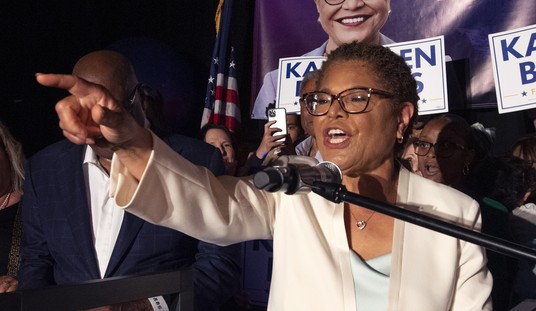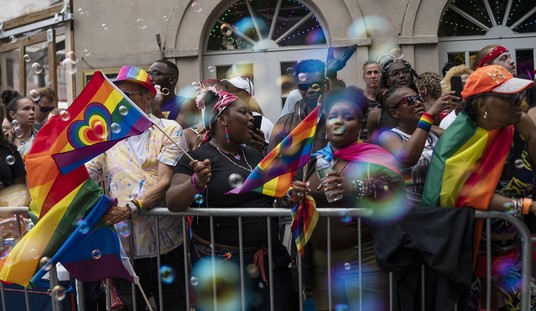 FEW BOOKS HAVE generated as much buzz in as short a time as No Easy Day by Mark Owen,1 a former Navy SEAL who participated in the mission that killed al Qaeda leader Osama bin Laden. While media have understandably focused on the bin Laden narrative, and the differences between it and the Obama administration’s story of the raid, it’s important to note something about this book at the outset: While Operation Neptune Spear (ONS), the bin Laden mission, is the hook (and a singularly effective one at that), this is neither a tell-all nor a score-settling effort, but a military memoir. This should be clear from the cover alone; though “The Firsthand Account of the Mission that Killed Osama bin Laden” is emblazoned on the front, the book also boasts the subtitle “The Autobiography of a Navy SEAL.”
FEW BOOKS HAVE generated as much buzz in as short a time as No Easy Day by Mark Owen,1 a former Navy SEAL who participated in the mission that killed al Qaeda leader Osama bin Laden. While media have understandably focused on the bin Laden narrative, and the differences between it and the Obama administration’s story of the raid, it’s important to note something about this book at the outset: While Operation Neptune Spear (ONS), the bin Laden mission, is the hook (and a singularly effective one at that), this is neither a tell-all nor a score-settling effort, but a military memoir. This should be clear from the cover alone; though “The Firsthand Account of the Mission that Killed Osama bin Laden” is emblazoned on the front, the book also boasts the subtitle “The Autobiography of a Navy SEAL.”
Owen was not only one of the few men selected to participate in ONS; he was in the door on the Black Hawk that crash-landed into bin Laden’s compound, and directly behind the SEAL who shot the al Qaeda leader on the third floor of his Abbottabad house. As such, Owen is in an excellent position to correct the existing narrative and replace it (or at least supplement it) with his own. As a participant, the author has more knowledge of the mission’s details and order of events (not to mention of his own thought processes and emotions) than the administration’s storytellers, the anonymous Beltway leakers, or the authors of “definitive” features on the raid, like The New Yorker‘s Nicholas Schmindle.
IN A STORY like this, the details matter. The book’s second half is dedicated to ONS and its aftermath, and in that portion of the text Owen reveals some relatively significant details that were not previously known. Examples include the use of four MH-47s carrying SEALs (two in Jalalabad, two in northern Pakistan) to serve as a quick-reaction force (QRF) and forward-area refueling and rearming point (FARRP) on the exfiltration route, the SEALs’ instruction to use a downed drone as their excuse for being in Pakistani territory if captured, the low quality of the video feed provided by drones that were almost constantly loitering over bin Laden’s compound, and an aerial infiltration route that included flying through Indian airspace in order to approach Abbottabad from the southeast. Additionally, there is no mention of “Stealth Hawk” technology (draw from that what you will).
Perhaps the most noteworthy (and oft-repeated) new information is the author’s description of bin Laden’s death, and the fact that the al Qaeda leader was unarmed when shot, despite having more than adequate warning of the Americans’ presence in his compound. As they approached the third level of bin Laden’s house, Owen writes,
“we were less than five steps from getting to the top when I heard the suppressed shots. BOP. BOP. The point man had seen a man peeking out of the door on the right side of the hallway about ten feet in front of him. I couldn’t tell from my position if the rounds hit the target or not. The man disappeared into the dark room.”2
It turned out they both impacted the right side of bin Laden’s head. Following this, Owen entered bin Laden’s room just behind the point man, who, he writes, grabbed two women standing over bin Laden’s body “and drove them toward the corner of the room. If either woman had on a suicide vest,” he writes, “he probably saved our lives, but it would have cost him his own. It was a selfless decision made in a split second.” Once the women were clear, several more rounds were fired into the twitching bin Laden’s torso.
While conducting sensitive site exploitation (SSE) on the objective, Owen found a shelf just above the door bin Laden had been looking out of when he was killed:
“I slid my hand up and felt two guns, which turned out to be an AK-47 and a Makarov pistol… I took each weapon down and pulled out the magazine and checked the chambers.
They were both empty.
He hadn’t even prepared a defense. He had no intention of fighting. He asked his followers for decades to wear suicide vests or fly planes into buildings, but didn’t even pick up his weapon. …Bin Laden knew we were coming when he heard the helicopter. I had more respect for [bin Laden courier and first enemy killed in action, or EKIA, on the objective] Ahmed al-Kuwaiti in the guest house because at least he tried to defend himself and his family. Bin Laden had more time to prepare than the others, and yet he still didn’t do anything.”
Of all the divergences from the Washington narrative on ONS present in No Easy Day, bin Laden’s death — and his being unarmed at the time — is the most significant, particularly because of the criticisms it will engender from armchair commentators who have never cleared a building or had to decide in an instant whether or not a head poking out of a dark room was attached to an armed body. Owen specifically recounts a government lawyer (“from either the Department of Defense or the White House”) responding to an operator’s “question…about whether or not this was a kill mission” by “ma[king] it clear this wasn’t an assassination.” However, by both including that and describing bin Laden’s death so matter-of-factly, Owen clearly communicates that, in his mind at least, there is no contradiction between the lawyer’s guidance and the team’s actions.
AS AN “AUTOBIOGRAPHY,” No Easy Day is lacking; a few references are made to the author’s youth in Alaska, one page is given to his decision – influenced by his missionary father – to put off Navy service for four years in favor of attending college, and his time in SEAL Team Five is briefly acknowledged, but for all intents and purposes, Owen’s story begins with his tryout for the Naval Special Warfare Development Group (DEVGRU, or SEAL Team Six) and his time as a trainee on the unit’s “Green Team.” While not a true “autobiography” (which would be difficult to produce while writing under a pseudonym), though, as a military memoir the book has a great deal to offer. Training, team life, and the bond between operators is effectively described, and the operations Owen chooses to include are vividly recounted, providing a feeling of being on the scene while remaining true to his desire “to protect identities [and] to protect the tactics, techniques, and procedures [TTPs] used by the teams as they wage a daily battle against terrorists and insurgents.” This was likely a very difficult tightrope to walk, but Owen was largely able to live up to the warning he issues the reader at the very beginning: “If you are looking for secrets, this is not your book.”
Owen further notes that “a former Special Operations attorney” was consulted “to ensure that [the book] was free from mention of forbidden topics and that it cannot be used by sophisticated enemies as a source of sensitive information to compromise or harm the United States.” As noted above, while TTPs are necessarily mentioned in the narrative, they are painted with a very broad brush. General evolutions in the team’s tactics are mentioned; examples include adapting raid infiltration methods from “Flying to the X” (arriving directly at a target building) to landing over the horizon from the target area and quietly patrolling in, and exercising “throttle control” – moving slowly, quietly, and deliberately through an objective – rather than moving at a constant sprint. In Owen’s words, “We were transitioning from being loud and fast, taking the enemy by surprise, to being soft and slow and retaining the element of surprise for even longer.” However, these details should not be seen as either secret enough or sensitive enough to compromise operational security in the present or future.
Despite the care taken not to disclose sensitive information, though, Owen has been notified by the Department of Defense that he is “in material breach and violation of the non-disclosure agreements [(NDAs) he] signed” both as a member of, and when leaving, the Navy. The real motivation behind this can only be guessed at (Owen’s contradiction of the Obama administration’s leaked accounts of the raid? His decision not to go through normal DoD channels for pre-publication review and approval?), but it is a real issue, and how it plays out could very well set a precedent for future actions by potential authors and DoD attorneys alike.
NAVY SEALS HAVE been in the news, in print, and on televisions and movie screens for several years now. In the early 2000s, Discovery Channel followed Basic Underwater Demolition–SEAL (BUD/S) class 234 through training, and earlier this year the movie Act of Valor, starring active duty SEALs, was released in theaters and on DVD. Additionally, memoirs by former Navy SEALs like Chris Kyle, Marcus Luttrell, and Brandon Webb have sold thousands of copies to a general public that is hungry for stories of strength and heroism from our current long war. What makes No Easy Day different from these?
The answer is both simple and complex. First, television programs like “Navy SEALs: BUD/S Class 234” and the film Act of Valor had the approval of, and direct support from, the Navy and the Department of Defense. No Easy Day,on the other hand, was published very quickly (sixteen months) after Operation Neptune Spear took place, and was released without the manuscript having been submitted for DoD review. Other military memoirs, like Webb’s excellent The Red Circle, have been written without Pentagon review and approval, but the events described within those are less current – and less of a lightning rod for attention and controversy – than the bin Laden raid.
Second, BUD/S training is not classified, and even the operators and exercises filmed in Act of Valor – as well as the authors of, and the operations described in, the aforementioned memoirs – came from the realm of “white” SOF. DEVGRU, on the other hand, comes from the intentionally more shadowy world of “black” SOF, where it and the rest of JSOC’s Tier 1 special mission units, and mission support units, reside. That fact alone makes No Easy Day a different, and much more sensitive, case.
There is no question that, by the letter of the law, the Pentagon has a case against Owen. All JSOC personnel sign NDAs (when I was there, it was a standard 70-year agreement), so simply by writing this memoir, and including information about JSOC and its operations, Owen almost certainly violated that document. Additionally, despite having been in the public sphere for many, many years, just the names SEAL Team Six and Delta Force, both of which are mentioned in concert with personnel and operations within Owen’s book, are classified, as are many details about them. These legal issues aren’t the only problems Owen is likely to face. America’s Tier 1 warfighters have long been known as notoriously quiet professionals, and, as former Delta Force officer “Dalton Fury” recently noted, writing about a unit and its exploits is enough to earn a former operator the status of persona non grata within the community.
IN THE PORTION of the book concerned with the aftermath of the raid, Owen describes the concern and frustration he and his teammates had with the geyser of leaks about the unit and the mission. “In Washington,” he writes, “anyone on Capitol Hill or in the Pentagon who had even a shred of information was leaking it.” This, of course, extended to the White House, where National Security Adviser Tom Donilan had to be told by then-Secretary of Defense Robert Gates to “Shut the [expletive] up” about the raid. In his epilogue, Owen writes of “the notoriety that came after” ONS: “We watched it with amusement at first, but that quickly turned to dread as more and more information leaked.”
While it may seem odd to express concern about leaks in an unapproved book, Owen excuses (or rationalizes) the contradiction by expressing his belief in the need to “set the record straight” about the mission, which he says has been reported “like a bad action movie…even [in] reports claiming to have the inside story,” because the story of “the men at the command who willingly go into harm’s way, sacrificing all they have to do the job…is a story that deserves to be told, and told as accurately as possible.”
Contrary to how some media outlets have reported on it, No Easy Day is not an anti-Obama book, and it does not read like a work conceived out of animus toward the current administration. In fact, the majority of the frustration expressed within its pages (aside from that saved for those leaking to the press about ONS) is directed at what Owen saw as ever-tightening rules of engagement in Afghanistan, which forced the unit “to ignore the all of the lessons we had learned, especially those learned in blood,” and which made operators feel “like we were fighting the war with one hand and filling out paperwork with the other.” While Owen and his teammates are clearly not Obama supporters (and he aptly describes Vice President Biden as “someone’s drunken uncle at Christmas dinner”), he acknowledges without grudge that they “respected [Obama] as the commander in chief of the military and for giving us the green light on the mission.” He likewise offers no criticism of Obama’s address to the nation on the night of May 1, 2011. Though the president did take the disproportionate amount of credit for the mission that Owen and his teammates expected him to, he writes, “We’d expected him to give away details…But I didn’t think his speech was bad at all. If anything, it was kind of anticlimactic.”
In defense of his decision to write No Easy Day, Owen notes that “everyone from President Obama to Admiral McRaven has given interviews about the operation,” a fact which makes him “feel comfortable doing the same.” The obvious difference, of course, is that both the Obama and McRaven are in a position to receive — or to dictate — guidance on what should and should not be disclosed. The downside to this reality, of course, is that those who conducted the mission are in a significantly weaker position than their superiors when it comes to creating and maintaining the narrative of events, even if the one being told by Obama, Donilan, and others lacks accuracy. The consequences of stepping out of line on that matter, of directly contradicting Washington’s narrative of events regarding Operation Neptune Spear, and of writing about his former unit are something Owen will have to live with, now and in the future. Just what those consequences will be — particularly in the legal and policy realm — will determine just how much of a precedent Owen’s book sets for future would-be writers.
NO EASY DAY is engaging and immensely readable. Even if the prose is stilted or repetitive at times (for example, conversations are rendered awkwardly due to a lack of contractions, and the word “fighters,” used to refer to the enemy in Iraq and Afghanistan, appears four times in a six-sentence span on two separate occasions, as well as four times in a two-page span and eight times in a six-page span elsewhere), the stories Owen tells are interesting enough, and the narrative flows well enough, to make such complaints minor at best. In his introduction, Owen, who himself was inspired at age 13 to become a SEAL by another veteran’s memoir, writes of his hope that “one day a young man in junior high school will read [No Easy Day] and become a SEAL, or at least live a life bigger than him.” While it is unlikely to provide the sustained controversy many in the media have sought within its covers, No Easy Day will engage a great many readers, and is almost certain to inspire many more – and, in Owen’s mind at least, “If that happens, the book is a success.”
No Easy Day: The Firsthand Account of the Mission That Killed Osama Bin Laden, by Mark Owen (ISBN 0525953728; 336 pages; $26.95), is published by Dutton.
1 Despite media reports about his true identity, I refer to the author throughout this review by his chosen pseudonym.
2 This review references the Kindle edition of the book, so page numbers are omitted by unfortunate necessity.













Join the conversation as a VIP Member